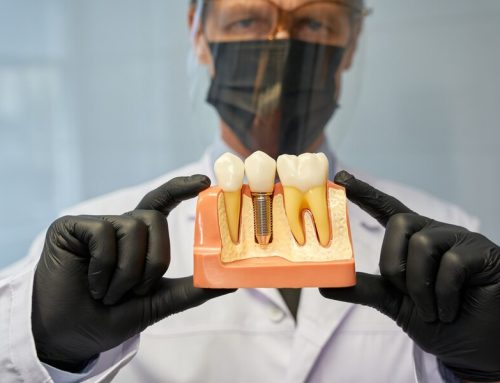Dental Abscess: A Localized Infection in the Tooth or Gums
A dental abscess is a localized infection in the tooth or gums, often appearing as a pus-filled pocket. This infection is usually caused by bacteria entering dental tissues due to tooth decay, dental trauma, or gum disease. Symptoms of a dental abscess include severe pain, swelling, redness, and sometimes fever. Treating a dental abscess requires professional and specialized intervention. Therefore, prevention is crucial and involves maintaining oral hygiene, regular dental check-ups, and timely treatment of dental issues.
Untreated dental abscesses can lead to serious complications, including the spread of infection to other parts of the body. Additionally, a dental abscess can cause inflammation in nearby areas, such as the jaw and neck, and may even lead to breathing difficulties. To learn more about abscesses and medical or home remedies to manage and treat this condition, stay with us.
Risks of Improper Abscess Treatment
Improper or inadequate treatment of an abscess not only fails to relieve pain but can also seriously threaten a person’s health. Below, we examine the dangers of unprofessional abscess treatment and discuss why it’s essential to consult a doctor and seek proper treatment.
Improper abscess treatment can lead to a wide range of complications, posing serious risks to health:
-
Spread of Infection to Surrounding Tissues
Incorrect treatment methods can allow the infection to spread through the bloodstream from the initial site to nearby tissues. This increases the severity and extent of the infection, slowing recovery and raising the risk of further complications. If the accumulated pus is not properly drained, the infection may enter the bloodstream or other body parts, potentially leading to dangerous conditions like sepsis. -
Increased Risk of Systemic Infections
Failure to treat the abscess correctly can introduce bacteria into the bloodstream, causing systemic infections and serious problems in other organs. This places significant strain on the immune system and raises the risk of acute complications. Systemic symptoms such as fever and headaches indicate the spread of infection and can cause severe harm. -
Antibiotic Resistance
Misuse or overuse of antibiotics in treating dental abscesses can lead to drug resistance. Antibiotic resistance reduces the effectiveness of available treatments and worsens infectious problems, making it harder to manage advanced infections and prolonging recovery. -
Increased Need for Surgery or Invasive Procedures
Improper treatment can worsen the infection, leading to complex abscess structures. This may necessitate more invasive procedures, such as surgery, in the future. Surgery not only increases costs but also carries greater risks and complications for the patient. -
Reduced Quality of Life and Chronic Pain
Inadequate treatment can result in persistent pain and long-term discomfort, disrupting daily activities and significantly affecting a person’s life. This diminishes quality of life and can lead to both physical and psychological issues. -
Psychological Distress and Anxiety Due to Lack of Recovery
Poor treatment may cause feelings of hopelessness and anxiety. The persistence of infection and symptoms increases psychological stress and reduces motivation to seek medical care, complicating recovery further. -
Abscess Recurrence
Improper treatment can lead to abscess recurrence, with pus and bacteria reaccumulating in the affected area, exposing the patient to more severe complications. -
Formation of a Fistula
Another dangerous complication of improper treatment is fistula formation—an abnormal connection between two organs or body cavities—which often requires surgical correction. -
Tissue Damage
If the abscess is not properly drained, pus buildup can damage surrounding tissues, leading to necrosis. This may require surgical removal of the affected tissue.
6 Home Remedies for Abscess Treatment
Now that we understand the serious risks of improper abscess treatment, it’s essential to learn about correct and complete treatment methods. Below are some effective home remedies:
-
Saltwater Rinse
Gargling with saltwater is an ancient and effective method for oral health issues, including abscesses. Its antimicrobial and anti-inflammatory properties help reduce harmful bacteria, swelling, and pain.-
How to use: Mix ½ tsp of salt in ½ cup of warm water. Swish in your mouth for 2 minutes, 2-3 times daily.
-
-
Baking Soda
Baking soda (sodium bicarbonate) helps remove plaque and has antibacterial properties.-
How to use: Mix ½ tsp baking soda with ½ cup water and a pinch of salt. Swish for 5 minutes, then spit out.
-
-
Cold Compress
Reduces pain and swelling by constricting blood vessels.-
How to use: Apply an ice pack wrapped in a cloth to the affected area for 15 minutes, then take a 15-minute break.
-
-
Clove Essential Oil
Contains antibacterial and anti-inflammatory properties.-
How to use: Dilute 3-5 drops in a carrier oil and apply to the abscess with a cotton swab.
-
-
Antibacterial Mouthwash
Helps reduce gum inflammation and plaque.-
How to use: Mix one part mouthwash with two parts water, swish, and spit.
-
-
Garlic
Natural antibiotic with wound-healing properties.-
How to use: Crush a garlic clove into a paste and apply to the abscess.
-
Medical Treatment for Dental Abscess
Professional treatments include:
-
Antibiotics
Prescribed to control infection but do not replace definitive treatment. -
Incision and Drainage
A small cut is made to drain pus, often followed by a rubber drain placement. -
Gum Disease Treatment
Addressing underlying gum disease prevents future abscesses. -
Root Canal Therapy
Removes infected pulp and seals the tooth to prevent reinfection. -
Tooth Extraction
Necessary if the tooth is severely damaged and cannot be saved.
Final Thoughts
Awareness of dental abscess symptoms and proper oral hygiene can prevent infections. If symptoms arise, consulting a dentist promptly is crucial to avoid severe complications. Understanding abscesses and seeking timely treatment ensures oral health and prevents unnecessary risks and expenses.







Leave A Comment